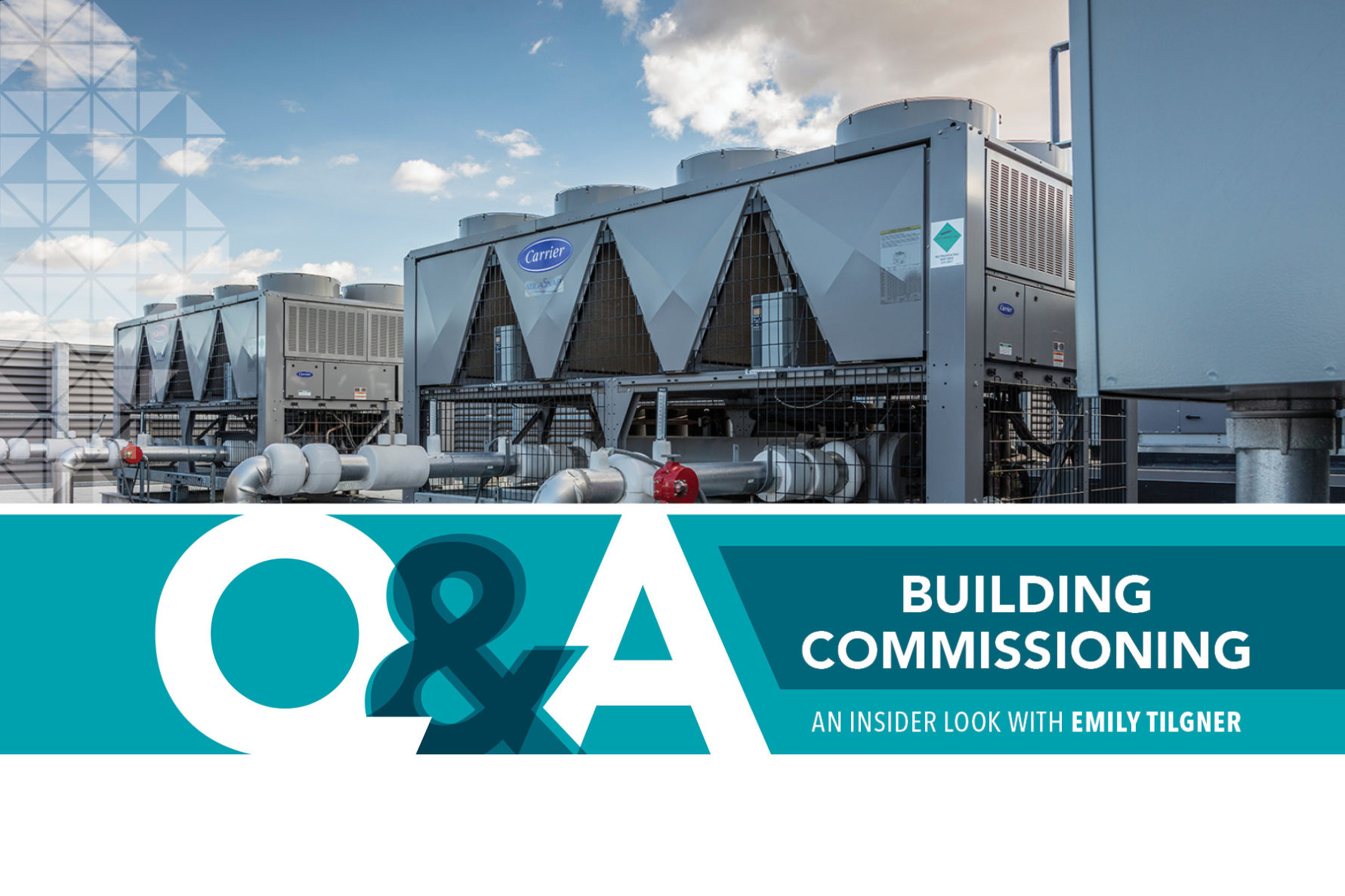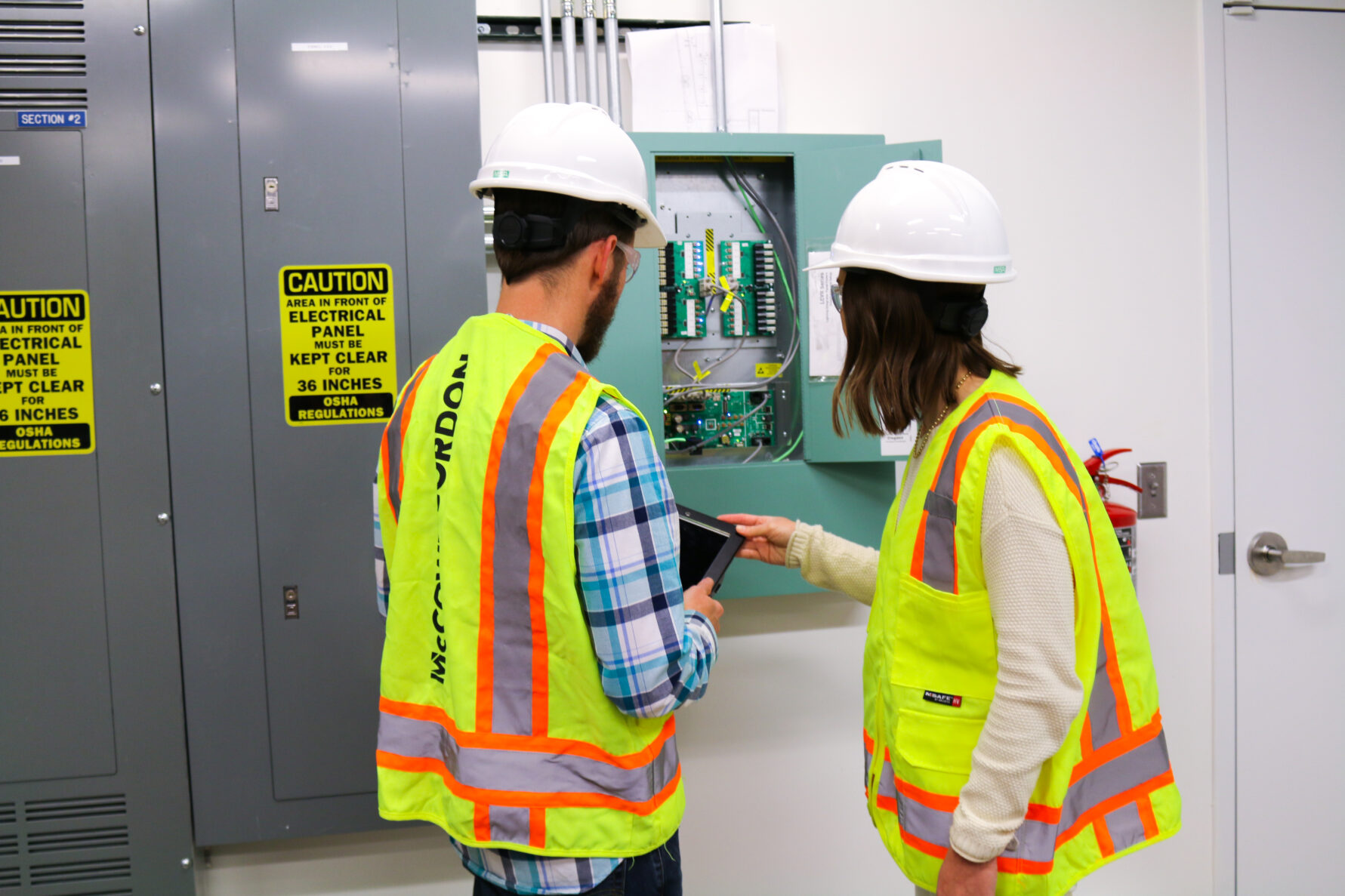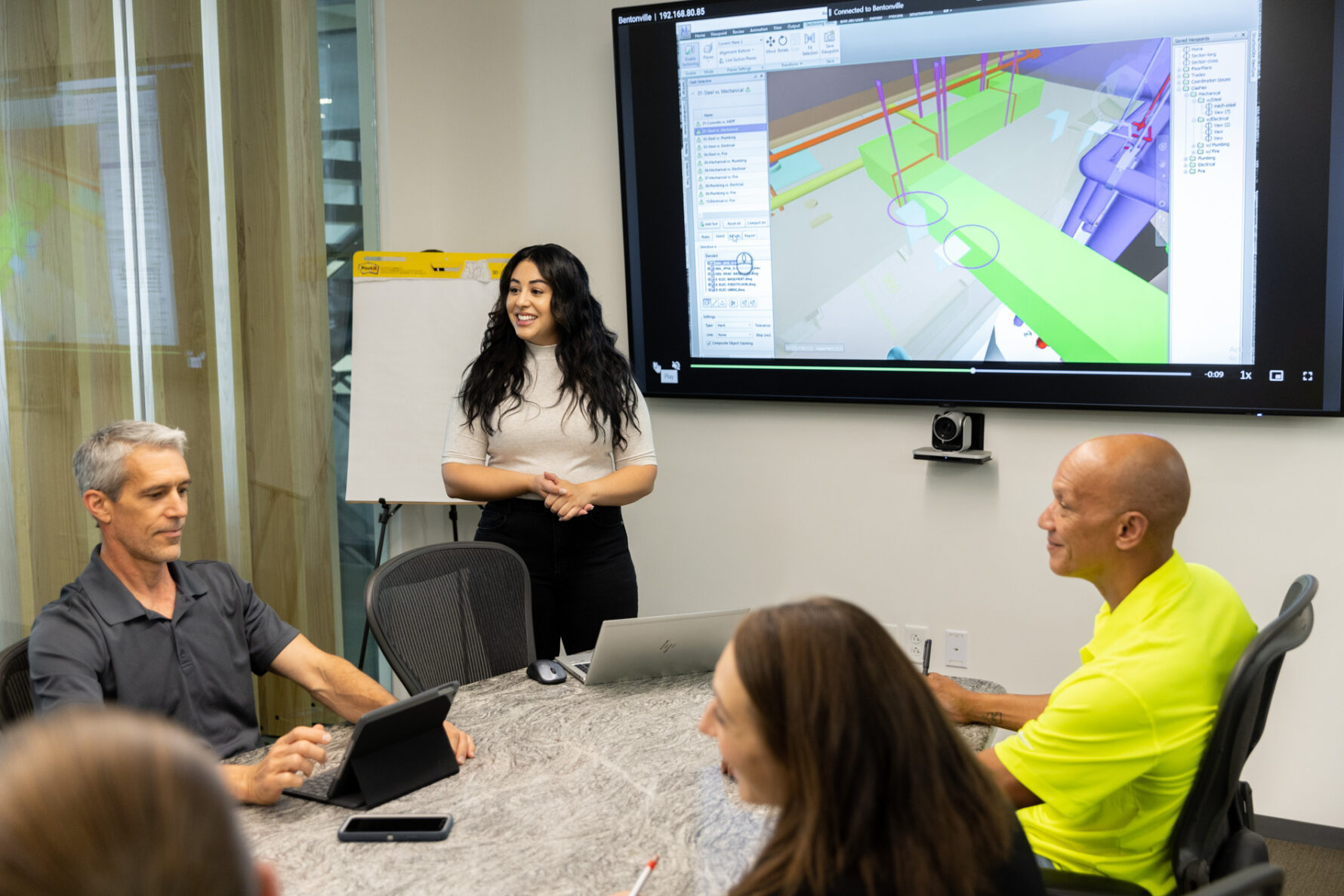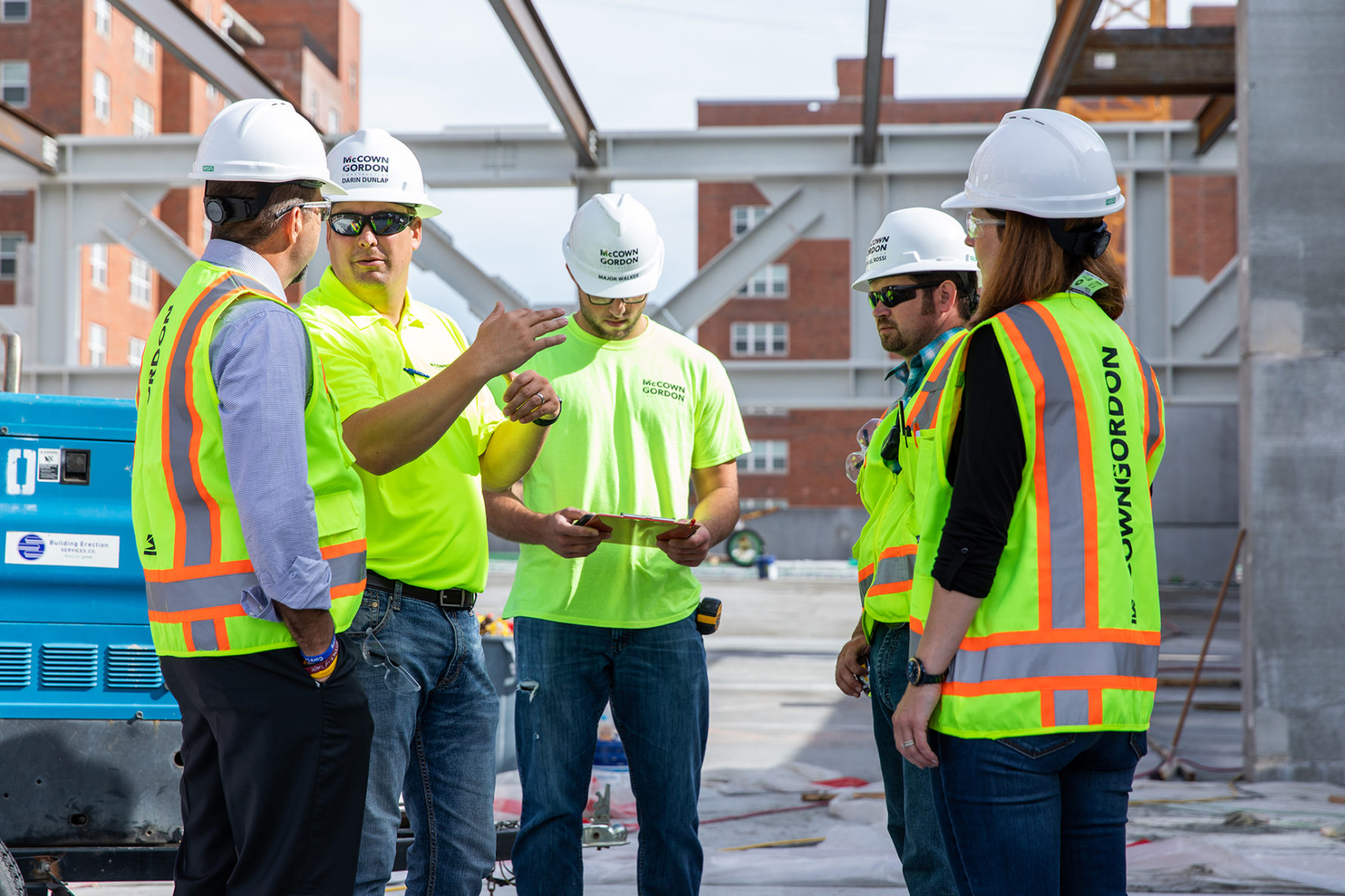Commissioning top 10 FAQ

1. What is building commissioning?
ASHRAE (American Society of Heating, Refrigerating and Air-Conditioning Engineers) fully defines the building commissioning process (CxP) as “a quality based process for enhancing the delivery of a project by achieving, validating and documenting the performance of facility elements in meeting the objectives and criteria of the Owner.”*
2. Why do I need it and what are the benefits?

CxP is not fully required** by all jurisdictions or codes; however, certain newer codes like the 2018 IECC are starting to require CxP of certain systems. Even if not code required, CxP is highly recommended due to the wide array of benefits and short payback timelines. CxP can provide an average of 13-16% annual energy savings, 8 – 20% reduction in equipment maintenance costs, better equipment performance, better indoor air quality (IAQ), and less post-occupancy corrective work to name a few. The median simple payback timelines of CxP range from 1.1 to 4.2 years.
3. Shouldn’t building commissioning already be covered by the construction team?
This is where language matters. The dictionary defines commissioning as “bringing (something newly produced, such as a factory or machine) into working condition.” So yes, the construction team does do that. For example, equipment such as rooftop units are tested at a factory before they are shipped. The installing contractor does the initial start up to make sure it turns on, fills out a startup checklist and marks the unit installation as complete. The unit is working but may not be working as the Owner intended or to its optimum conditions.
Building Commissioning (CxP) expands the dictionary definition even further. CxP validates and documents that systems are in working condition together to meet Owner expectations. Picture your building as an office structure, with individual systems (HVAC, lighting, etc.) like departments within a company. Department heads (contractors) ensure their departments are running smoothly e.g. the heads of marketing, finance and operation all ensure that they are executing their tasks and doing all verifications needed to perform their job. But what if the CEO never explained what she wanted from each of those groups or what if running marketing at optimal levels came at a huge cost to finance and operations? The overall performance of the company would suffer. This is where CxP can help.
CxP helps to communicate the Owner expectations to all parties and works with the construction team to achieve, validate and document how to meet those expectations. In the office example, the CxP ensures that each department head not only understands what the CEO wants but that those departments are working together to achieve the best result for the company, not just the individual department. For your building, the CxP spends time reviewing and testing the systems/equipment holistically to meet expectations.
4. Aren’t the installing contractors making sure the equipment works properly?
Absolutely, however, “properly” is the key word. Picture this: your child asks you to build him/her a model car. You have understanding of model cars, you may have even built one before, so you are confident in your ability. You read the instructions, assemble the car, do any final checks and hand it over anticipating their excitement. When you see their face, you only see disappointment. “But it doesn’t move by itself…” You are flabbergasted. The directions hadn’t mentioned about the car needing to be self-propelled, no other model cars you built had to move independently, he/she didn’t tell you that detail, but you didn’t ask either.
So, your child is disappointed, and the car doesn’t work “properly” from their viewpoint. Wouldn’t it have been easier to determine that need before you stared building? Wouldn’t it have been easier if the directions had indicated that need/possibility? Same is true of CxP. To understand if equipment is working “properly” we need to understand/document the expectations. CxP is a process that should start before any drawings are started to map out what the Owner’s requirements are and then those requirements can be verified they are covered in the drawings/specifications so that the installing contractors can run full tests drafted by the CxP to meet the Owner’s requirements.
What’s the difference between CxP and CM? →
5. What does a commissioning authority do?
The Commissioning Authority is the individual that leads, plans, schedules, and coordinates the implementation of the CxP process. There are many components of CxP but at a high level, he/she helps to develop the Owner’s Project Requirements (OPR), provides a CxP plan that delineates how to achieve the OPR, review the design documents to ensure the OPR is being met, reviews equipment submittals and creates test for the commissioned equipment to ensure the operating meets the owner’s expectations, assists with training of staff to ensure future operations, documents all issues and resolutions that arose through the process, and completes a CxP report that captures all of the above for future reference.
6. What does commissioning cost?
CxP can cover a wide variety of scope/disciplines e.g. water heating systems, lighting control, HVAC controls, HVAC equipment and the process can start in pre-design or can sometimes start, although it is not recommended, at the start of construction. Since the scope can be so varied, so can the costs – anywhere from $0.35 – $3.00/sf. However, the average costs of CxP are around 0.4% of total construction cost or $1.00/sf – very small number compared to other aspects of construction.
7. When should commissioning start
Ideally as early as possible. To achieve the most benefits of CxP (utility cost savings, lower maintenance costs, better IAQ) it is most beneficial to have the CxP on board prior to or at the same time as your design team. By establishing the OPR as soon as possible, the process is streamlined by ensuring the entire team is aware of the Owner’s expectations.
8. Does commissioning take the place of design or construction team?
No. Design, construction, and commissioning are all separate, distinct scopes of work. Design firms (architecture and engineering) create contract documents (drawings and specifications). The Contractor furnishes and installs the materials and equipment to required to meet the contract documents. The Commissioning Authority documents the Owner’s requirements and works with the design and construction firms to achieve, validate, and document the performance of the equipment to meet the Owner’s requirements. Download our roles and responsibilities guide to understand each players role through design and construction.
Download the roles and responsibility guide →
9. My project has already started. Is it too late to add commissioning? Can I commission an existing building or does it have to be new construction?
No, commissioning can be added and can still provide benefit if construction has already begun; however, to achieve the most benefit, commissioning should be
brought on as early as possible.
You can absolutely commission existing buildings and this service can provide a huge benefit to building operation. Most existing building commissioning (EBCxP) projects offer a payback of just over a year and can provide cost savings anywhere from $0.18 – $0.29 /SF / year. The biggest reported benefits of EBCxP are improved thermal comfort, longer equipment life, better IAQ and improved productivity.
10. Why Should I select McCownGordon as my commissioning authority?
McCownGordon Construction has a long history of outstanding performance on our projects and high levels of quality. Selecting us as your commissioning authority is a natural evolution of this quality process. Our team is more likely to be impartial than a commissioning authority from the engineering team or trade partners who have designed or installed the work themselves. Our department depth of experience and understanding in all facets of commissioning (design, energy efficiency and construction) give us a unique point of view to help you achieve your goals.
Our ability to plan and have the experience of both design and construction allows us to collaborate, understand and schedule CxP tasks more efficiently than firms that have only a design or a construction point of view. Simplified communication and execution of tasks, reduced
costs, fewer delays, and more sustainable and efficient designs are only a few of the benefits to having McCownGordon as your partner.
Have more questions for our commissioning team?
Follow Us
McCownGordon strives to be a thought leader in our industry and provide continuous insight and updates to our clients to ensure we're keeping up with the latest technology and safety standards and regulations.
Sign Up



